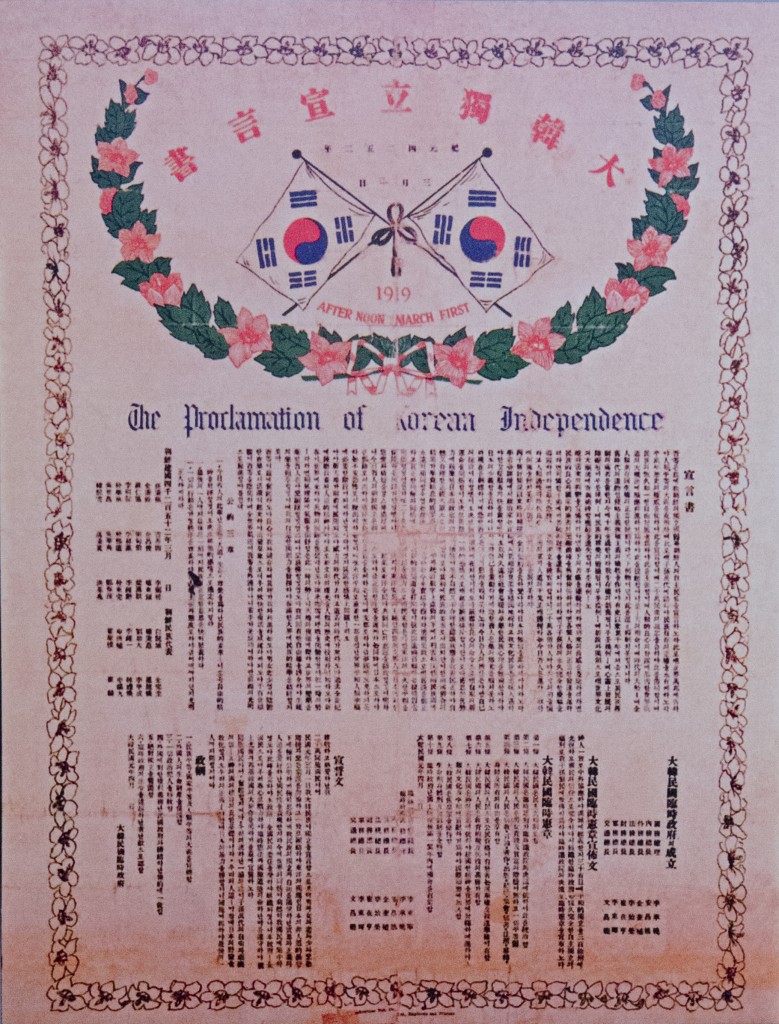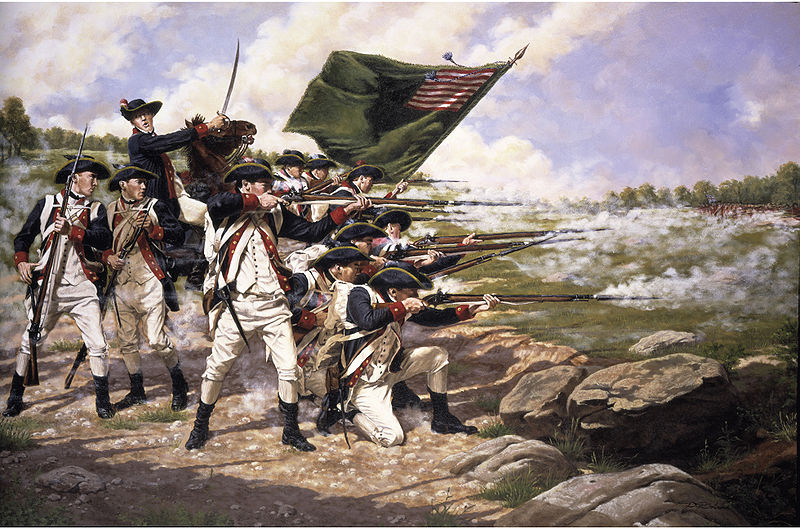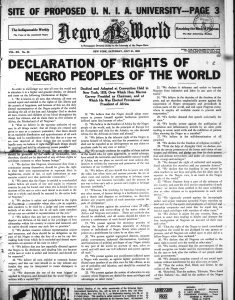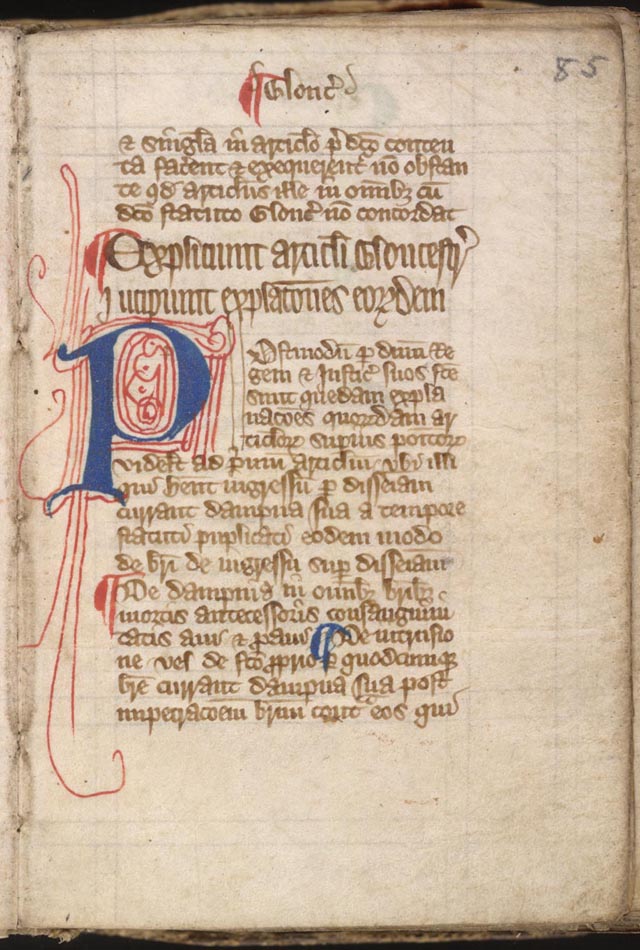A Declaration of Liberty and Order

MyDeclaration The primary responsibility of a government is to provide for the common defense, maintain social order, promote liberty, provide for the equal treatment and protection under the law, and to ensure economic and social opportunity for its citizens. These rights extend to all citizens, regardless of race, ethnicity, religion, gender, sex, sexual orientation, or […]
The Black Panther Party for Self-Defense Ten-Point Platform and Program — “A combination of a Bill of Rights and a Declaration of Independence” (1967)

Editor’s note: This document is characterized by Huey P. Newton, co-founder in 1966 with Bobby Seale of the radical Black Panther Party, as a “combination of a Bill of Rights and a Declaration of Independence.” Officially called “The Black Panther Party for Self-Defense Ten-Point Platform and Program, it was crafted and then published by the […]
Declaration of Common Aims of the Independent Mid-European Nations (1918)

Editor’s note: A veritable declaration of independence was issued on October 26, 1918, after leaders of mid-European nations convened in for several days at Independence Hall in Philadelphia — of all places — shortly before the ending of World War I and the breakup of the Austro-Hungarian empire. Thomas Masaryk, a professor who would become […]
Declaration (Proclamation) of Korean Independence (1919)

Editor’s note: On March 1, 1919, after 9 years of Japanese occupation, 33 primarily cultural and religious leaders of the Samil Movement (most political leaders were jailed or in exile) convened and drew up a proclamation of independence. This sparked a nationwide protest movement, called the March 1st Movement or the Samil Independence Movement, which featured widespread demonstrations to […]
Recommendation for Independence by Scituate, MA, residents

Editor’s note: A month before the July 4, 1776 Declaration of Independence was penned, the residents of this seacoast town in Massachusetts called upon the representative of Scituate to support their sentiment to break from Britain, which in their estimation was seeking “to extirpate the Americans from the face of the earth, if possible, unless they […]
Address of a Watchman to the People of Pennsylvania, on a Declaration of Independence (June 24, 1776)

Editor’s note: In this eloquent and insightful missive of June 24, 1776, a Pennsylvania watchman — typically someone who keeps lookout in a town at night — forewarns his countrymen that declaring and even winning independence is just a first step — “we shall then only have crossed the Red Sea of our difficulties. A wilderness will still […]
The Declaration of the Rights of the Negro Peoples of the World (1920)

Editor’s note: On August 13, 1920, this declaration of black grievances, rights and principles was drafted and adopted at a convention of the Universal Negro Improvement Association, presided over by Marcus Garvey, a leading advocate of Black Nationalism and Pan-Africanism. Garvey had a sizable following of disenfranchised black Americans — as demonstrated by the more than 20,000 […]
Act of Abjuration – a.k.a. Dutch Declaration of Independence (1581)
Editor’s note: Popularly known as ‘the Dutch Declaration of Independence,’ this document — formally entitled the Act of Abjuration — Plakkaat van Verlatinghe in Dutch (literally “placard of desertion”) — was the collective product in July 26, 1581 of leaders of a group of northern Dutch provinces who asserted their independence from Spanish rule. Though it is […]
Magna Carta – a.k.a. Declaration of the Rule of Law (June 12, 1215)

Editor’s Note: Often referred to as the ‘Declaration of the rule of law,’ the Magna Carta, or ‘Great Charter,’ was enacted in 1215, the culmination of the efforts of English barons to limit monarchical rule and enumerate rights for the people (especially people like them). In one of its most-known clauses, the Magna Carta states that “No […]
Declaration of Equality, by Fredric K. Schroeder, National Federation of the Blind (July 5, 2007)

Editor’s note: This declaration of equality, composed by Fredric K. Schroeder, First Vice President of the National Federation of the Blind and a research professor at San Diego State University, draws upon our July 4, 1776 Declaration of Independence, U.S. Constitution, and Lincoln’s Gettysburg address in making its stirring case for equal rights for the blind. […]

